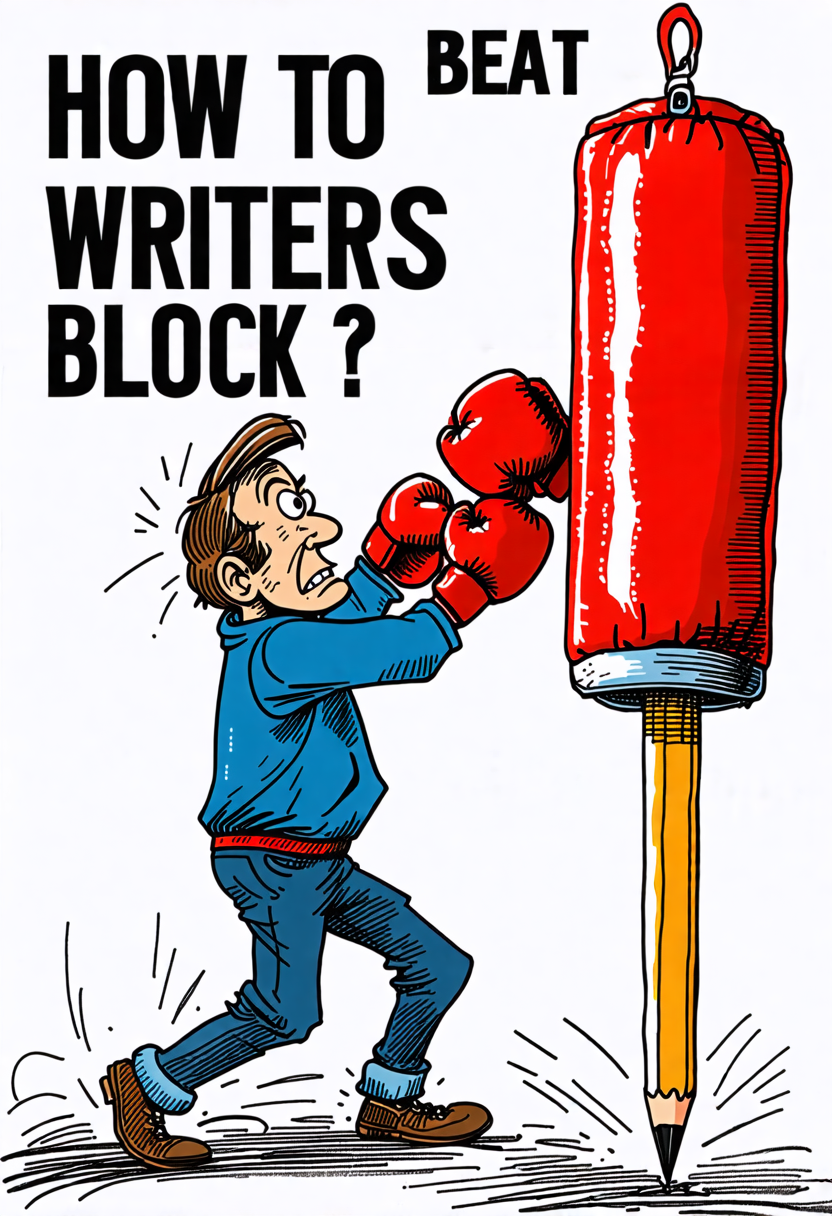How To Beat Writer’s Block?
Beat writer’s block with these five tips. First, give yourself permission to write terrible stuff. Don’t aim for perfect sentences right away. Set small, achievable goals, like writing 100 words a day. Quit while you’re ahead to maintain momentum for your next session. Engage in multiple projects to keep ideas fresh. Finally, get moving—a simple walk or some stretches can boost creativity.
Write Terrible Stuff
Giving yourself permission to write terrible stuff can free you from the paralysis of perfectionism. Don’t worry about crafting the perfect sentence. Just start writing. The key is to get your thoughts on paper.
Remember, you can always edit later. Maya Angelou once said, ‘You can’t use up creativity. The more you use, the more you have.’ Embrace that idea. Writing without waiting for perfection allows your creativity to flow.
Persistence is essential. Keep writing even when it feels tough. Quality will come with time and practice. Embrace the process, regardless of the quality of your first drafts.
Set Achievable Goals
Setting achievable goals is key to overcoming writer’s block. Start with small, manageable tasks. Maybe write just 100 words a day. It’s not much, but it adds up. As you get comfortable, gradually increase your word count. This way, you won’t feel overwhelmed. Remember, it’s about progress, not perfection.
Avoid setting unrealistic expectations. If you aim to write a whole chapter in a day, you might end up frustrated. Instead, break your work into smaller sections. Focus on one paragraph or scene at a time.
Consistency is vital. Like George Singleton’s analogy with WD-40, you need regular, steady effort. By setting doable goals, you’ll build momentum and keep your creative juices flowing. So, start small and keep going.
Quit While Ahead
Stop writing when you’re on a roll. It might sound counterintuitive, but stopping at a high point keeps your momentum going. When you quit while ahead, your subconscious continues to work on ideas, making your next session smoother. Leave notes for the next time so you can jump right back in.
- Follow Ernest Hemingway’s advice: Hemingway would stop writing at a high point, ensuring he always had a starting place.
- Maintain momentum: Planning ahead helps you stay motivated and consistent.
- Trust your subconscious: Your brain keeps working even when you’re not actively writing.

Engage in Multitasking
Engage in multiple creative projects to keep your mind fresh and ideas flowing. By working on different projects, you can switch gears when one task starts to feel stagnant. This helps maintain your productivity and prevents burnout. Neil Gaiman suggests this approach to stay prolific and inspired.
Here’s how multitasking can help you:
| Benefit | Description | Example |
|---|---|---|
| Increased Creativity | Switching tasks sparks new ideas | Writing a poem, then a story |
| Continuous Progress | Keeps you moving forward on all fronts | Editing one, drafting another |
| Less Burnout | Avoids overworking any single project | Painting, then writing |
Get Moving
When switching tasks doesn’t cut it, getting up and moving can jumpstart your creativity. Physical activity boosts your brain and gets the ideas flowing. You don’t have to run a marathon. Even small movements can make a big difference.
Here are a few ways to get moving:
- Take a walk: A quick stroll around the block can clear your mind.
- Stretch: Simple stretches at your desk can relieve tension and refresh your thoughts.
- Dance: Put on your favorite song and dance like no one’s watching.
These activities can break the monotony and help you see your writing from a new perspective. So, whenever you feel stuck, remember to get up and move. It’s a simple but powerful tool.








